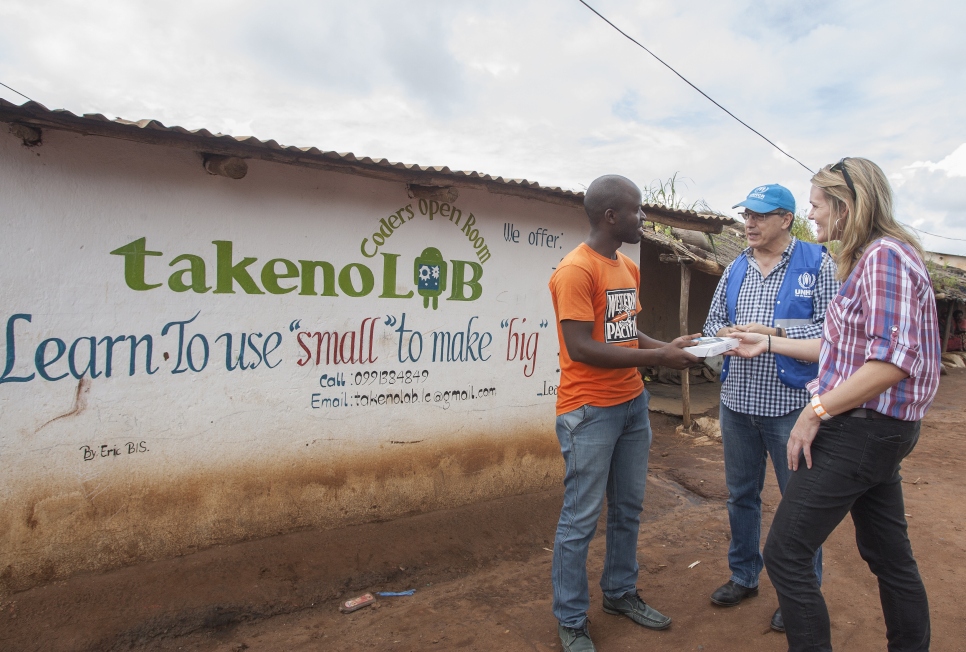Malawi: Internet and Mobile Connectivity
UNHCR carried out a global assessment of refugees’ access to the internet and mobile phones where available, to help inform the development of a new UNHCR Global Strategy for Connectivity for Refugees. One of the key findings of the research is that while 7 per cent of refugee communities lack the requisite digital infrastructure for internet access and mobile communications, most refugees in urban areas live in places that have 2G or 3G mobile coverage. For those in rural areas, however, access to internet connectivity is more complicated.
Through the use of broadcasting frequencies, connectivity will be initially provided at eight connectivity centres, strategically chosen by UNHCR in consultation with its partners. Through funding by Microsoft for a one-year period, refugees and interested host communities will receive free access to internet through the connectivity centres.
As many refugees already pay for costly internet connection with the little money they have, the project will start off by ensuring that 28,000 refugees and host communities have access to low cost broadband internet connection for US$2.40 per month for 1 gigabyte (90 per cent lower than current costs through other service providers).
Solar panels have been installed to supply green power to the connectivity centres.
1,000 smartphones will be distributed to refugee community leaders who will use the connectivity to benefit their communities. Besides having easier access to their communities and families back home, the connectivity will also be provided to organizations that are working in the camp to improve service delivery.
Other plans are to link the connectivity with education initiatives to improve access to learning opportunities. Another plan is to use the newly established internet connection for livelihood programs to facilitate the search for employment.

